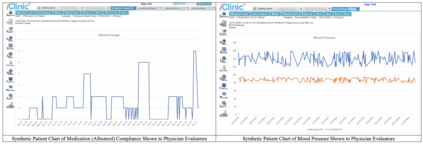The development and adoption of Electronic Health Records (EHR) and health monitoring Internet of Things (IoT) Devices have enabled digitization of patient records and has also substantially transformed the healthcare delivery system in aspects such as remote patient monitoring, healthcare decision making, and medical research. However, data tends to be fragmented among health infrastructures and prevents interoperability of medical data at the point of care. In order to address this gap, we introduce BlockIoT that uses blockchain technology to transfer previously inaccessible and centralized data from medical devices to EHR systems, which provides greater insight to providers who can, in turn, provide better outcomes for patients. This notion of interoperability of medical device data is possible through an Application Programming Interface (API), which serves as a versatile endpoint for all incoming medical device data, a distributed file system that ensures data resilience, and knowledge templates that analyze, identify, and represent medical device data to providers. Our participatory design survey on BlockIoT demonstrates that BlockIoT is a suitable system to supplement physicians' clinical practice and increases efficiency in most healthcare specialties, including cardiology, pulmonology, endocrinology, and primary care.
翻译:电子健康记录(EHR)和物质健康监测互联网(IoT)设备的开发和采用,使病人记录数字化,并在远程病人监测、保健决策和医学研究等方面大大改变了医疗提供系统,然而,数据往往分散在保健基础设施中,妨碍了医疗数据在护理点的互操作性。为了缩小这一差距,我们引进了BlutIoT, 利用链链技术将以前无法获取的中央数据从医疗设备转移到EHR系统,为能够反过来为病人提供更好结果的提供者提供了更多的见识。通过应用规划界面(API),这一医疗设备数据互操作性的概念是可能的,该界面是所有进取医疗设备数据的多功能端点,一个分散的档案系统,确保数据复原力,以及分析、识别和代表医疗设备数据给提供者的知识模板。我们对BlutIoT的参与性设计调查表明,BlockIoT是一个合适的系统,用来补充医生的临床实践,提高大多数保健专业的效率,包括心脏学、肺病学、内分泌和初级保健的效率。







